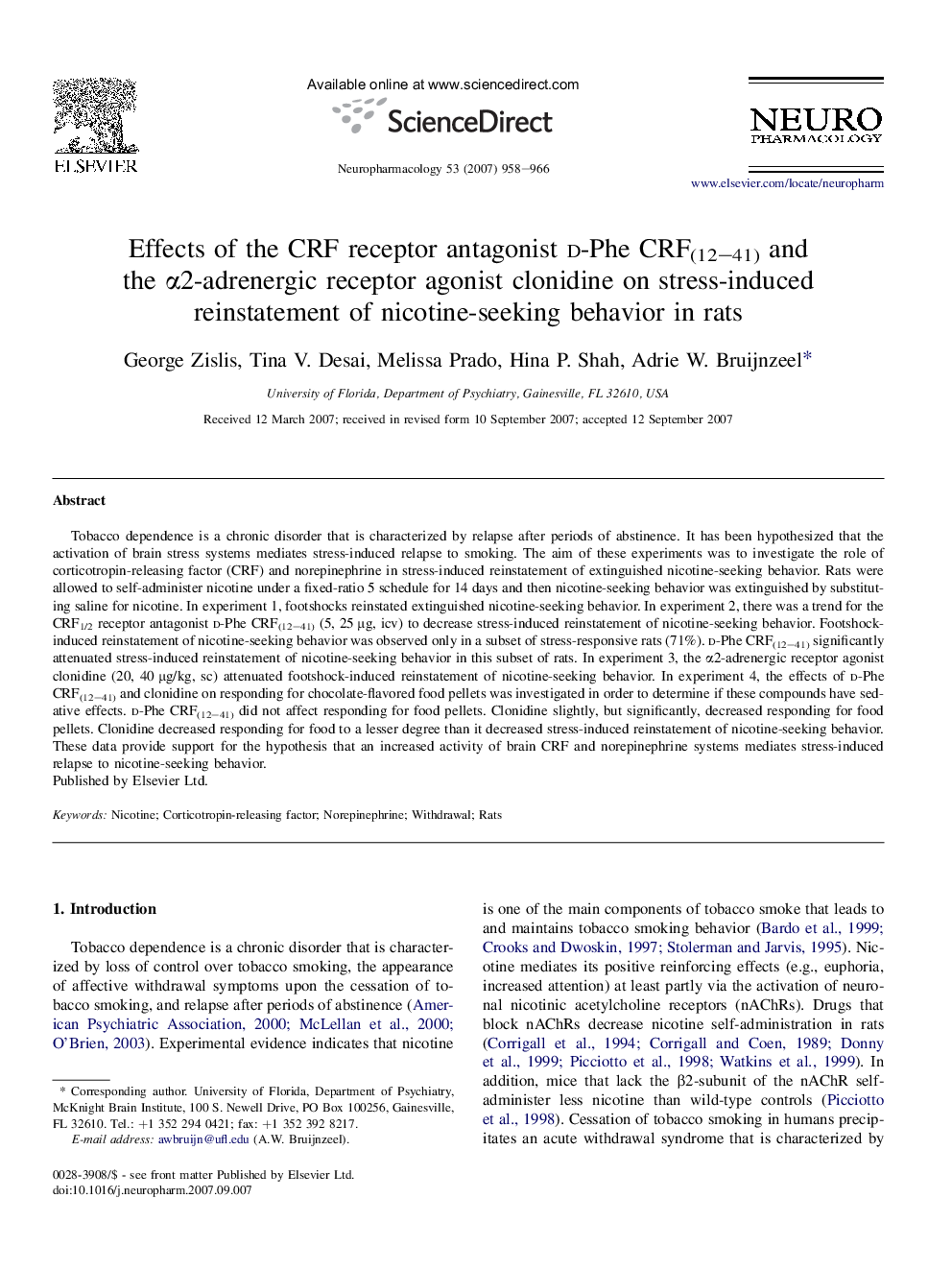| کد مقاله | کد نشریه | سال انتشار | مقاله انگلیسی | نسخه تمام متن |
|---|---|---|---|---|
| 2495003 | 1115590 | 2007 | 9 صفحه PDF | دانلود رایگان |

Tobacco dependence is a chronic disorder that is characterized by relapse after periods of abstinence. It has been hypothesized that the activation of brain stress systems mediates stress-induced relapse to smoking. The aim of these experiments was to investigate the role of corticotropin-releasing factor (CRF) and norepinephrine in stress-induced reinstatement of extinguished nicotine-seeking behavior. Rats were allowed to self-administer nicotine under a fixed-ratio 5 schedule for 14 days and then nicotine-seeking behavior was extinguished by substituting saline for nicotine. In experiment 1, footshocks reinstated extinguished nicotine-seeking behavior. In experiment 2, there was a trend for the CRF1/2 receptor antagonist d-Phe CRF(12–41) (5, 25 μg, icv) to decrease stress-induced reinstatement of nicotine-seeking behavior. Footshock-induced reinstatement of nicotine-seeking behavior was observed only in a subset of stress-responsive rats (71%). d-Phe CRF(12–41) significantly attenuated stress-induced reinstatement of nicotine-seeking behavior in this subset of rats. In experiment 3, the α2-adrenergic receptor agonist clonidine (20, 40 μg/kg, sc) attenuated footshock-induced reinstatement of nicotine-seeking behavior. In experiment 4, the effects of d-Phe CRF(12–41) and clonidine on responding for chocolate-flavored food pellets was investigated in order to determine if these compounds have sedative effects. d-Phe CRF(12–41) did not affect responding for food pellets. Clonidine slightly, but significantly, decreased responding for food pellets. Clonidine decreased responding for food to a lesser degree than it decreased stress-induced reinstatement of nicotine-seeking behavior. These data provide support for the hypothesis that an increased activity of brain CRF and norepinephrine systems mediates stress-induced relapse to nicotine-seeking behavior.
Journal: Neuropharmacology - Volume 53, Issue 8, December 2007, Pages 958–966